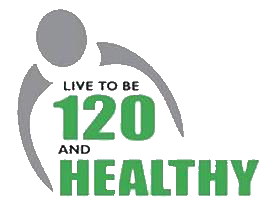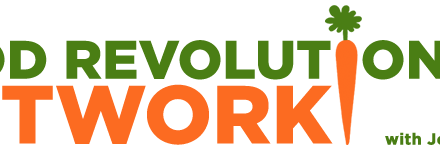\ABS\Auto Blog Samurai\data\120 Blog\Healthcom Happy and Healthy\Woman-Serving-Lunch-70x70.jpg) How A Macrobiotic Diet Can Change Your Life Lee Gross is most well known for helping to launch M Cafe, LA’s premier macrobiotic eatery, and (maybe even more so) for being Gwyneth Paltrow’s personal chef during her macro days. Today, he lends Read
How A Macrobiotic Diet Can Change Your Life Lee Gross is most well known for helping to launch M Cafe, LA’s premier macrobiotic eatery, and (maybe even more so) for being Gwyneth Paltrow’s personal chef during her macro days. Today, he lends Read
The vegan movement is growing. Many people are ditching animal products and picking up plants. However, not everyone is convinced, partly because there’s so much conflicting information going around. One nutrition expert declares you need meat to be strong, while another with equal credibility says the complete opposite. But who to trust?
I can’t make that decision for you, but I can share my experience with a vegan diet, and attempt to clear up some of the myths. Hopefully I can reduce the confusion and allow you to make an informed decision that resonates with you.
1. A vegan diet is always healthy, or always unhealthy.
There is plenty of evidence to suggest that replacing animal products and processed foods with whole, plant foods reduces your risk of developing various chronic diseases. Personally, this way of eating has improved my health issues, and I know others who have experienced similar success.
But let’s not get it twisted: being vegan doesn’t guarantee health. You can eat fries and candy all day and still be vegan, but you won’t be healthy. Even if you do stick to whole foods, diet isn’t everything. Health is made from many interacting components. Regardless of nutrition, you won’t thrive if you’re constantly stressed, or if you don’t exercise regularly.
2. Vegans don’t get enough protein.
While protein is important for growth and repair, the amount we need is often exaggerated. In reality, if you eat a variety of plant foods, a protein deficiency is almost impossible to achieve. Quinoa, beans, lentils, seeds, and even broccoli contain adequate amounts. After being vegan for over a year, blood work showed my serum protein levels were higher than the normal range. No animal products, no powders — just plants.
3. Vegans always get vitamin and mineral deficiencies.
If you choose nutrient dense, plant foods, you’re unlikely to run into deficiencies. Greens are packed with calcium, legumes are filled with foliate, seeds contain omega-3’s — the list goes on. From my experience, there’s nothing beneficial in animal products that you can’t get from plants.
One exception is vitamin B-12. There are many arguments as to why it’s not found in vegan foods (such as soil degradation) but the details don’t really matter. It’s safer to take a supplement.
4. Becoming vegan is difficult.
Making changes can be daunting, especially dietary ones. Most of us have habits that are ingrained from years of repetition. If you attempt to change everything at once and go vegan ‘cold turkey’, you’ll probably struggle.
But if you let go of the idea of a perfect plant-based diet, and instead focus on making small, gradual changes, suddenly it isn’t so hard. Perhaps begin with a green smoothie for breakfast, and when you’re comfortable, adjust your lunchtime meal. If you take it at your own pace, it soon becomes second nature.
5. There’s nothing to eat but salad.
Pre-plant-powered, I thought it wasn’t a meal unless it contained meat. Becoming vegan changed my relationship with food. I realised there are so many delicious flavours to experience. If you’re stuck for ideas, there are thousands of great recipe books and blogs out there with tasty, healthy meals to try.
6. It’s not for athletes.
I was initially nervous to see how the vegan diet would affect my athletic performance, but was pleasantly surprised with faster recovery times, less inflammation, and more energy.
I’m not alone in that regard. An increasing number of vegan athletes are thriving in their sports, and it’s not just the long distance guys like Rich Roll and Brendan Brazier. Take a look at free-running extraordinaire Tim Shieff, strongman Patrik Baboumian, and MMA fighter Mac Danzig.
7. It’s expensive.
It can be expensive if you only buy organic, gourmet foods and pseudo-grains. But with a little planning and shopping around, a vegan diet can be very affordable. Bulk buying lentils, pulses and whole-grains works out cheap, and you can often get deals at markets on fresh produce. You’ll also save money in the long run, with less being spent on medical bills.
8. Veganism is not scalable.
An idea I’ve heard thrown about quite frequently is that there’s not enough land available to grow the crops needed to sustain a world full of vegans. It’s nice that people are thinking of the big picture, but what they fail to realise is that most of the food we currently grow goes to feeding the animals we consume. If we ate less animals, we would have more food for ourselves, using less land, water and energy.
Photo Credit: Stocksy
\ABS\Auto Blog Samurai\data\120 Blog\Healthcom Happy and Healthy\adbeanstew-70x70.jpg) Fertility-Friendly Adzuki Bean Stew Many patients come into the clinic and ask me if they should eliminate gluten or dairy from their diet to enhance fertility. Although this might be a good idea for some, it seems that in our society Read
Fertility-Friendly Adzuki Bean Stew Many patients come into the clinic and ask me if they should eliminate gluten or dairy from their diet to enhance fertility. Although this might be a good idea for some, it seems that in our society Read 
Luke is a plant-based blogger at Health Room, the site he uses to explore and share ideas in plant based nutrition, moving freely, living mindfully, and existing sustainably. He loves training in martial arts and calisthenics, exploring the outdoors, and seeing others chase their dreams and move towards their health potential.




